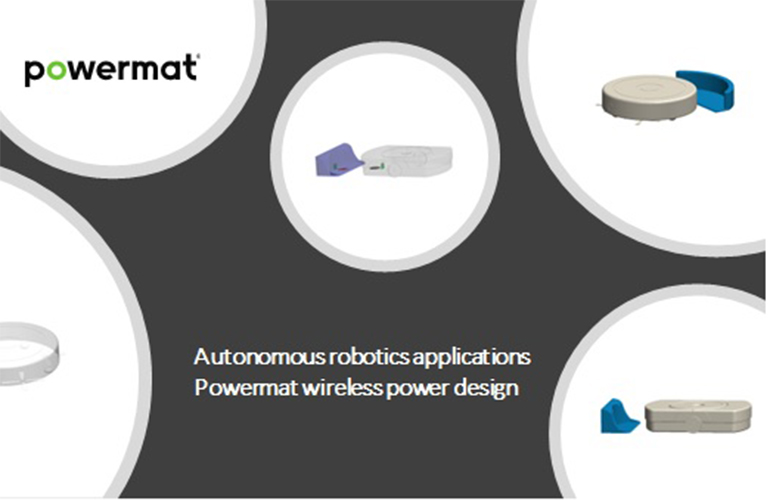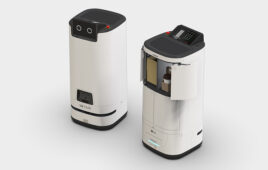|
Listen to this article
|

Powermat Technologies, a global supplier of wireless charging technologies, announced its PMT350 600W wireless power platform, the next generation in its family of platforms based on the company’s SmartInductive hybrid inductive/resonance technology. Building on its previous-generation 40W, 200W and 300W platforms, Powermat’s new 600W platform is optimized for mid-power industrial products, including robots.
Removing charging cables and replacing them with Powermat’s wireless power technology creates autonomous systems free from exact alignment or docking restrictions. Powermat also said this can reduce the expensive downtime of both maintenance and wired charging, lowering the total cost of ownership (TCO).
“Delivering [an] affordable wireless power system designed for Industry 4.0 is a game-changer for powerful systems that are notoriously expensive to implement,” Powermat CEO Kfir Abuhatzira said. “Industrial equipment often vibrates or moves, so replacing charging cables which can break or dislodge with wireless power technology eliminates the expensive downtime of both maintenance and wired charging to lower total cost of ownership.”
The new PMT350 platform delivers a total power of 600W with up to 58V input and output and up to 12.5A current. It works with lower-power applications as well and can be configured in multi-module mode for applications requiring more than 600W.
Powermat’s SmartInductive wireless power technology features embeddable software implemented on COTS hardware for maximum affordability. A transmitter (Tx) sends energy wirelessly to a receiver (Rx) that converts it to power to directly power a device or recharge its batteries. SmartInductive combines the best of short-range inductive and resonance wireless charging to eliminate exact placement restrictions and provide freedom of alignment between the Tx and Rx charging coils up to eight inches. SmartInductive can penetrate eight inches of walls and windows, and beyond power transmission, can also transmit data between the coils to control edge devices.






Tell Us What You Think!